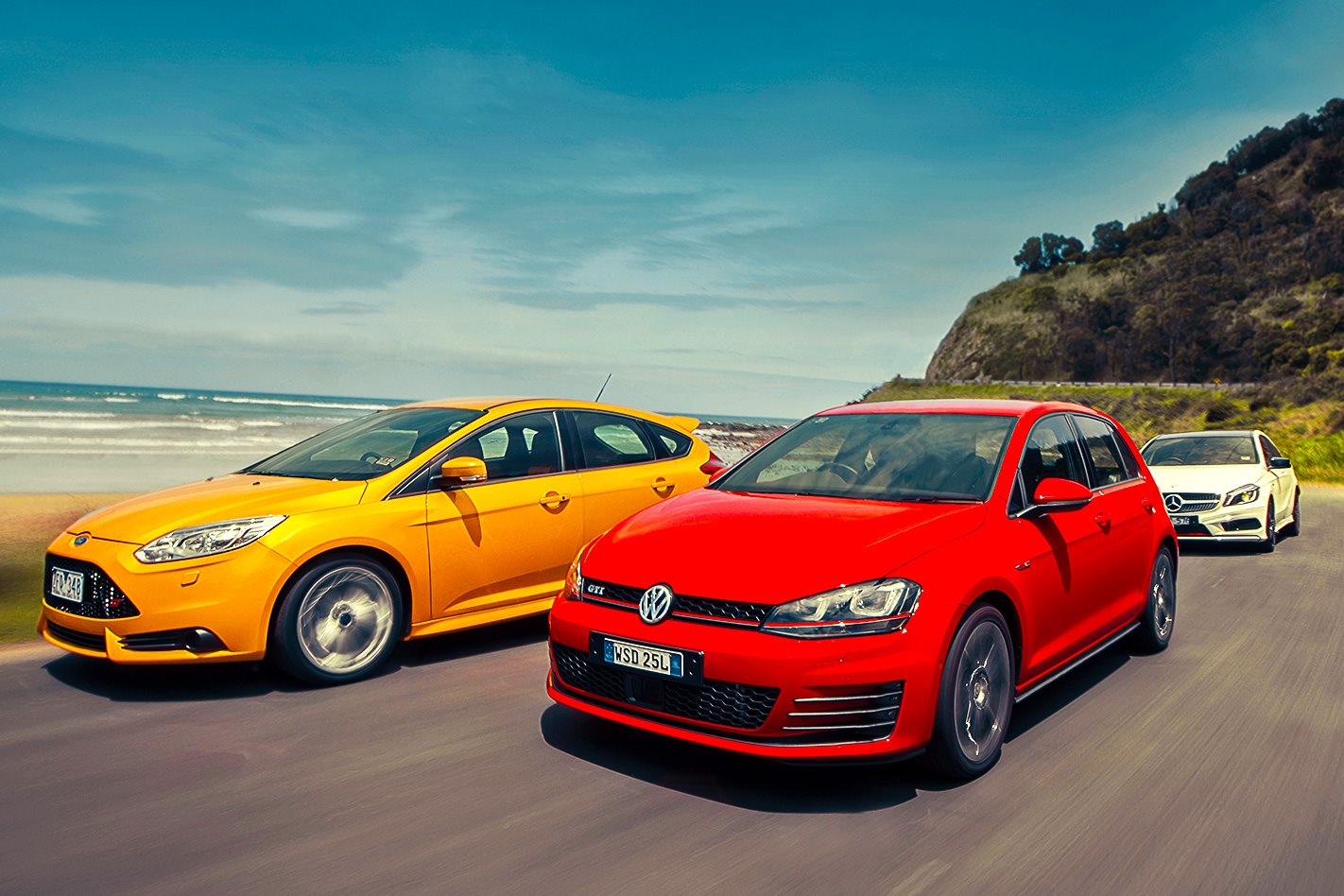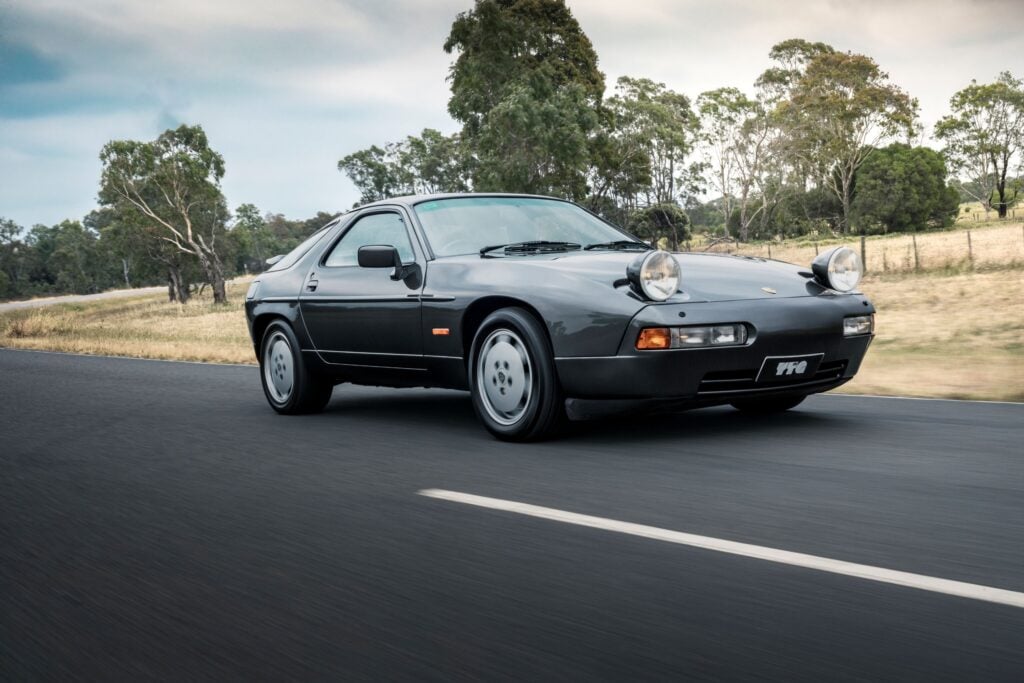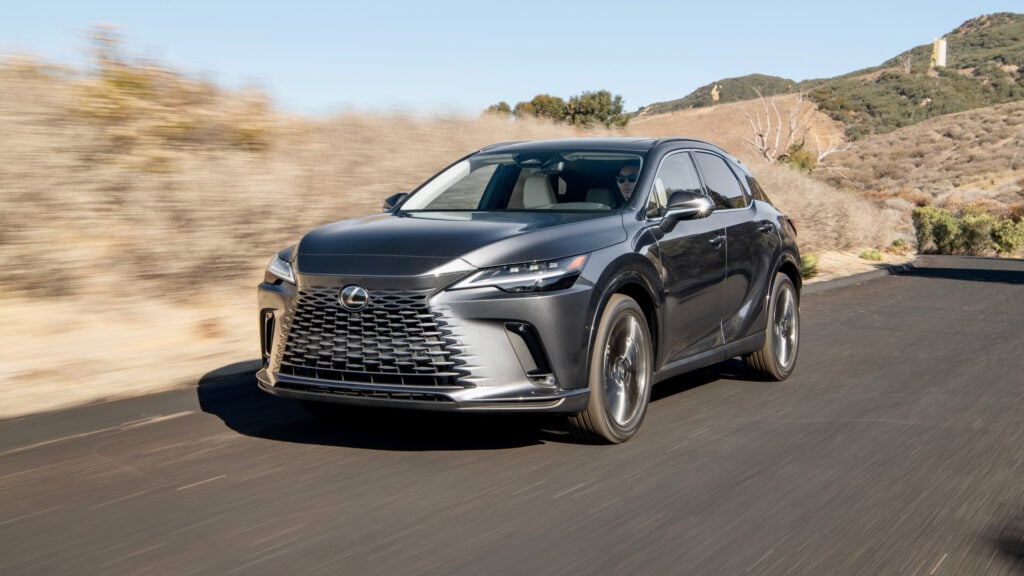A few years ago, the hot hatch genome inexplicably split in two.
One branch mutated with huge wheels, swooping coupé rooflines and bulging wheelarches, sacrificing practicality for style and supercar-rivalling back-road pace. Think Renault Sport Megane, VW Scirocco and the now sadly defunct-in-Oz Opel Astra OPC.
The other branch shunned such trendy bling, sticking true to the traditional hot hatch values, offering enthusiast appeal in everyday packaging. And there’s no better exponent of this than the car that has defined the genre for 40 years, Volkswagen’s Golf GTI.
It fulfils every criteria you could want in a car: fast yet fuel efficient, entertaining to drive but with room for five people plus luggage and all at a respectable price.
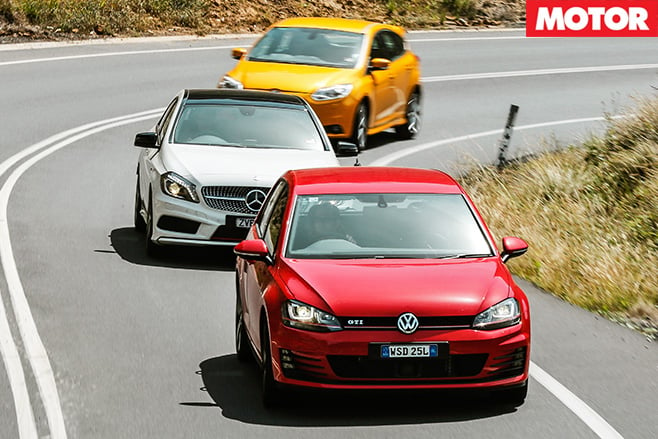
Case in point is the new Mercedes-Benz A-Class. Starting at $49,990, the A250 Sport could be seen as an expensive five-door hatch, but plenty of buyers are viewing it as a cheap way to park a three-pointed star in their driveway, as the baby Merc is flying out of dealers faster than it’s arriving on boats.
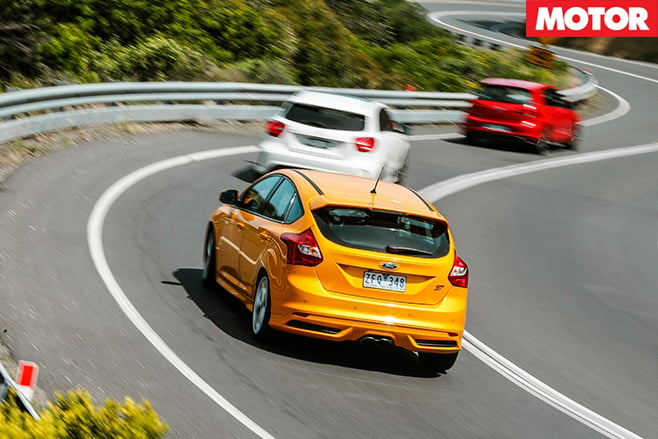
Step inside the new Golf, however, and you’d swear it cost much more. Material quality and fit and finish are excellent, the driving position is widely adjustable, and the level of standard kit – dual-zone climate, satnav, 5.8-inch touchscreen, leather multifunction wheel – might surprise those who can remember when the Germans thought it acceptable to charge extra for floormats.
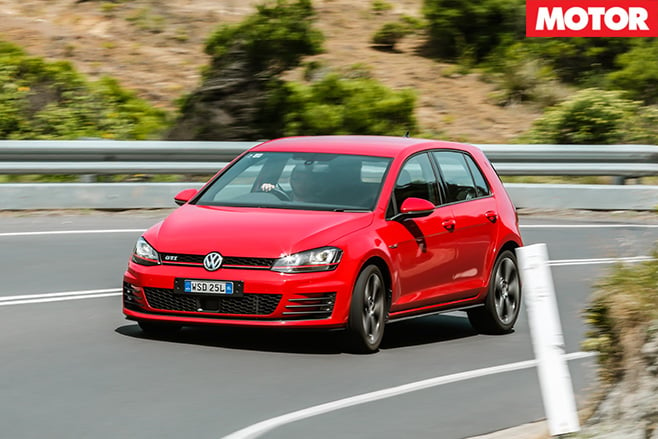
Inside, the A-Class continues to impress. The driving position is good (though the brake pedal sits a lot higher than the accelerator) and the overall layout and design is impressively similar to models further up the Mercedes heirachy. Optional satnav and manually-adjustable seats feel a bit stingy in a $50K car, though.
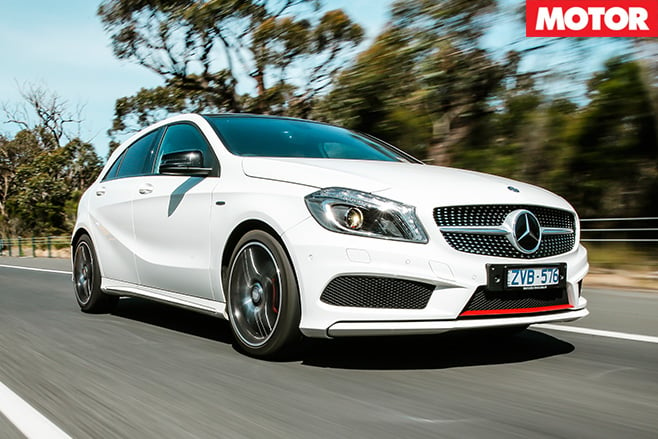
It’s well equipped, the Recaro seats hold you tight and the steering wheel’s size makes it a nice thing to hold. But then your elbow hits the seat bolster when changing gear because the lever sits too far back, the sat-nav screen is so small it’s like watching your telly from the front lawn, and the steering wheel layout means that simple tasks like adjusting the volume or cruise control speed requires taking a hand off the wheel.
Thankfully, you won’t care about any of this when you’re thrashing the Focus to within an inch of its life, which you will do, often, because it’s brilliant. At first, its hyperactive responses are a bit unnerving, like a dog that’s been fed illicit substances – you want to play with it, if only it would settle down for a second.
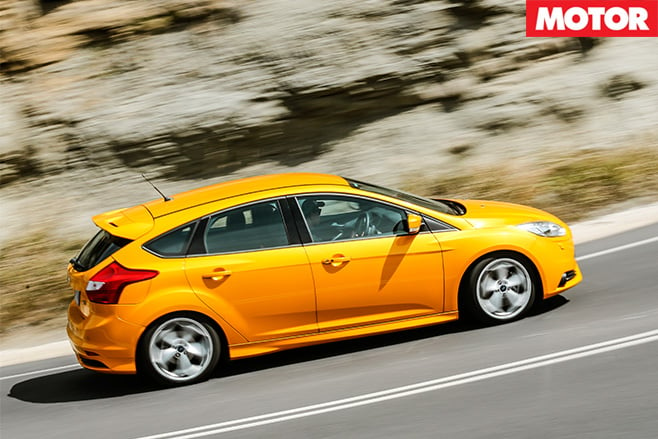
It’s slightly mad, though it can also play sensible. Driven more sedately, there’s plenty of grip and the ride strikes possibly the best compromise between body control and compliance.
It’s certainly better than the Mercedes, which is v-e-r-y firm. It’s not uncomfortable per se, but it reacts to bumps the others ignore and can get wearing on poor surfaces. Thankfully, the taut setup pays dividends in the bends. It’s hard to know what to expect from a Mercedes hot hatch, as it’s never built one before, but the way you can adjust the car’s attitude using throttle and brake proves the engineering team did its homework.
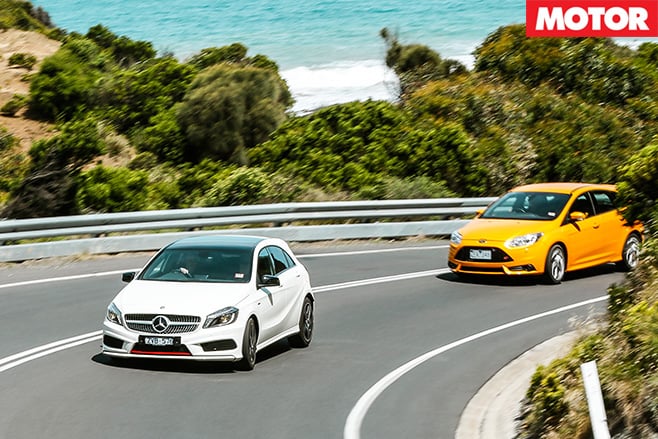
What’s not a highlight is the seven-speed dual-clutch gearbox, its refusal to accept downchange requests made more galling in comparison to the other cars’ slick six-speed manuals.
Unsurprisingly, the GTI strikes a balance between the two dynamically. Like the Focus, it has variable ratio steering – just 2.1 turns lock to lock compared to a normal Golf’s 2.75 – but VW’s system feels more natural and intuitive than Ford’s, while still making sure the driver never has to shuffle their hands on the wheel.
One of the biggest changes for the seventh-generation GTI is the adoption of adaptive dampers as standard – in Comfort or Normal modes, the GTI offers a level of ride comfort the others can only dream about, while being just as tied down in Sport. It doesn’t quite have the ultimate grip of the Focus, but the GTI is so easy and forgiving to drive fast, flowing effortlessly down the road.
Where the Golf does fall down is getting its power to the ground. Despite the XDL electronic diff lock, the GTI is too eager to waste time with wheelspin, particularly on slippery surfaces. This is no doubt thanks to the increase in torque for the new model.
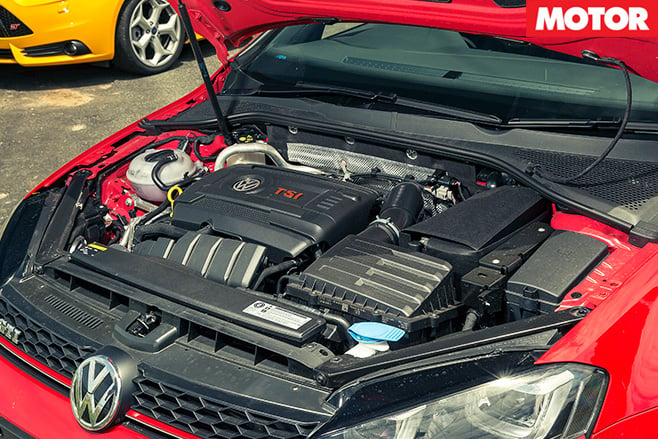
With 184kW/360Nm from its 2.0-litre Ecoboost four, the Focus is similarly afflicted, with the steering wheel always keen for a wrestle when you put your right foot down. Ford engineers claimed that the torque compensation ability of the new electric steering meant that we wouldn’t miss the mechanical diff and trick front suspension of the Focus RS. They were wrong – we do – though in faster corners the ST’s front end does nail itself to the ground impressively well under power.
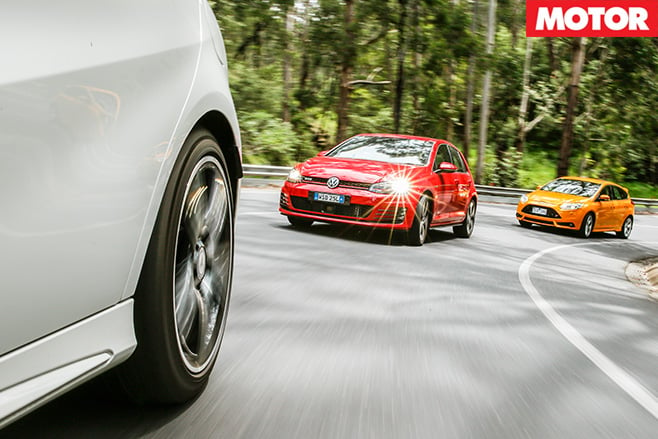
Tested on the same day, the Focus managed 7.24sec to 100km/h, a time which reflects the difficulty of launching it cleanly more than any lack of outright speed. The GTI, tested at PCOTY in DSG form, leaves the others trailing with 0-100km/h taking just 6.44sec.
Once rolling, however, the more powerful Ford blows the others away. At the end of the quarter the Focus is showing 160km/h compared to 157.6km/h for the GTI and just 152.3km/h for the A250. Overtaking acceleration is another clear win for the tangerine ST, taking just 3.29sec from 80-120km/h versus 3.8sec for the VW and 4.54sec for the Merc.
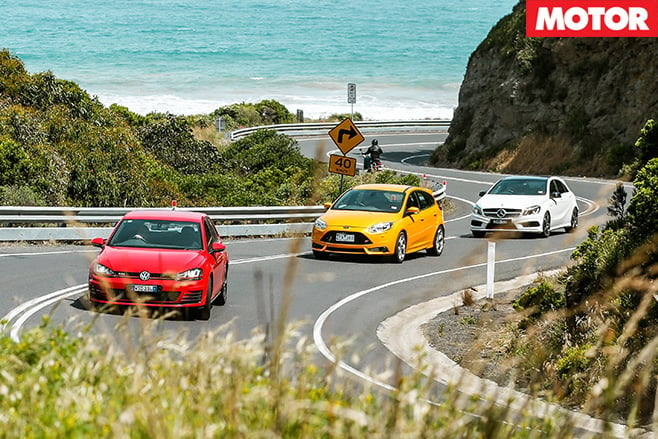
If this was a test purely about the way these cars drive at the limit, the Focus ST would probably win. It’s the only true drivers’ car here, a car that you could own for a year and still feel you’re yet to get the best from it.
But for everything that’s brilliant about it (chassis, engine performance, price), there’s something equally annoying (the torque steer, the interior layout, a turning circle the size of a bus), and these warts stick out like the pimples on a teenager’s face when you’re up against a car that has very few flaws.
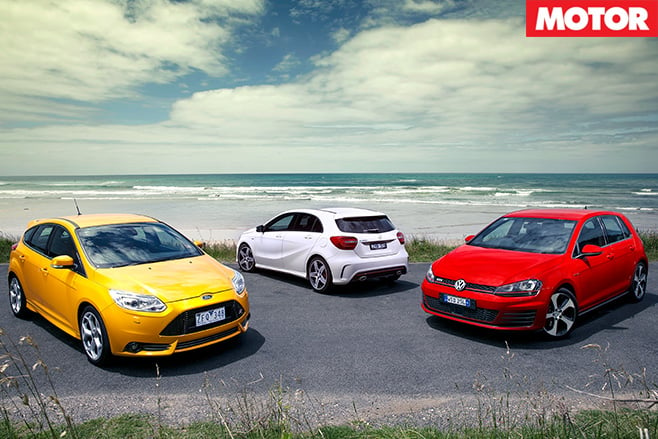
Some will criticise it for not being ‘aggro’ enough, but to make it more hardcore would be to lose part of what makes it such a great car. There may be others faster or more agile, but the GTI remains the car that best fulfils the hot hatch criteria.
Cockpit Comparison
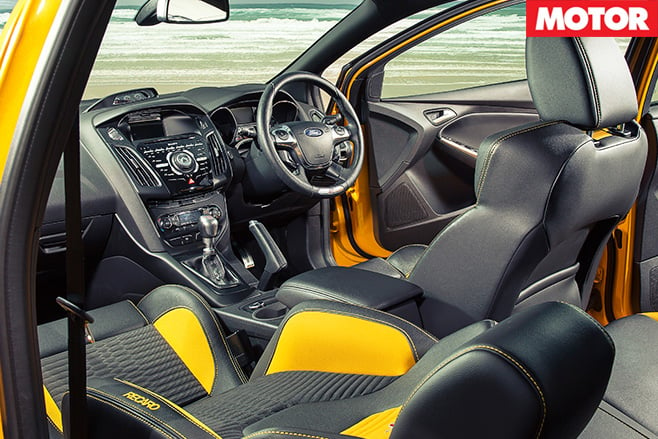
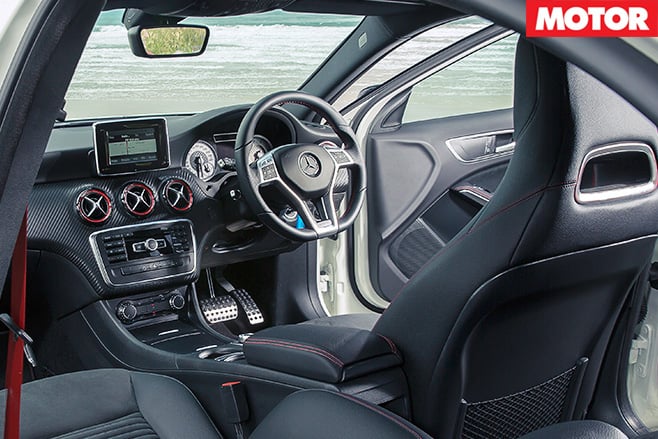
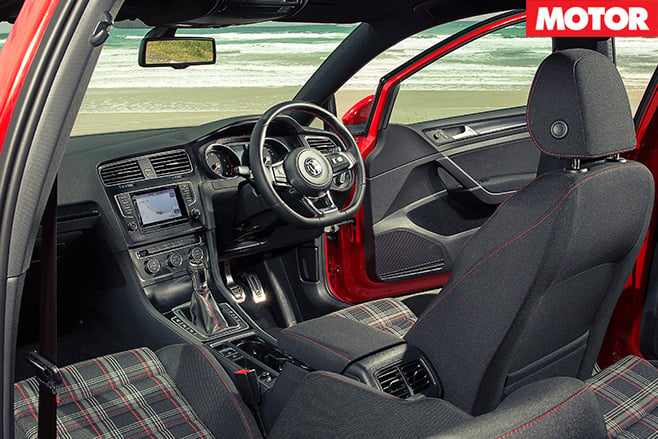
| u00a0 | u00a0 | Ford Focus ST | u00a0 | Merc A250 Sport | u00a0 | VW Golf GTI |
| u00a0 | u00a0 | 4 out of 5 | u00a0 | 3.5 out of 5 | u00a0 | 4 out of 5 |
| Body | u00a0 | 5-door, 5-seat hatch | u00a0 | 5-door, 5-seat hatch | u00a0 | 5-door, 5-seat hatch |
| Drive | u00a0 | front-wheel | u00a0 | front-wheel | u00a0 | front-wheel |
| Engine | u00a0 | 2000cc in-line 4, DOHC, 16v, turbo | u00a0 | 1991cc in-line 4, DOHC, 16v, turbo | u00a0 | 1984cc in-line 4, DOHC, 16v, turbo |
| Bore/ Stroke | u00a0 | 87.5 x 83.1mm | u00a0 | 83.0 x 92.0mm | u00a0 | 82.5 x 92.8mm |
| Compression | u00a0 | 9.3:1 | u00a0 | 9.8:1 | u00a0 | 9.6:1 |
| Power | u00a0 | 184kW @ 5500rpm | u00a0 | 155kW @ 5500rpm | u00a0 | 162kW @ 4500 – 6200rpm |
| Torque | u00a0 | 360Nm @ 2000-4500rpm | u00a0 | 350Nm @ 1200-4000rpm | u00a0 | 350Nm @ 1500 – 4400rpm |
| Redline/Cut | u00a0 | 6500/6800rpm | u00a0 | 6250/TBCrpm | u00a0 | 6000/6900rpm |
| Power-to-weight | u00a0 | 127kW/tonne | u00a0 | 113kW/tonne | u00a0 | 122kW/tonne |
| 0-100km/h | u00a0 | 7.24sec (tested) | u00a0 | 7.48sec (tested) | u00a0 | 6.44sec (tested) |
| Top Speed | u00a0 | 250km/h (claimed) | u00a0 | 240km/h (limited) | u00a0 | 250km/h (limited) |
| Consumption | u00a0 | 7.4L/100km (claimed) | u00a0 | 6.6L/100km (claimed) | u00a0 | 6.2L/100km (claimed) |
| Emissions | u00a0 | 172g/km (claimed) | u00a0 | 148g/km (claimed) | u00a0 | 153g/km (claimed) |
| Transmission | u00a0 | 6-speed manual | u00a0 | 7-speed dual-clutch | u00a0 | 6-speed manual |
| Weight | u00a0 | 1454kg | u00a0 | 1370kg | u00a0 | 1324kg |
| Suspension | u00a0 | A-arms, anti-roll bar (f); multi links, coil springs, anti-roll bar (r) | u00a0 | A-arms, anti-roll bar (f); multi links, coil springs, anti-roll bar (r) | u00a0 | A-arms, adaptive dampers, anti-roll bar (f); multi links, coil springs, adaptive dampers,u00a0anti-roll bar (r) |
| L/W/H | u00a0 | 4362/1823/1484mm | u00a0 | 4355/1780/1430mm | u00a0 | 4349/1799/1491mm |
| Wheelbase | u00a0 | 2648mm | u00a0 | 2699mm | u00a0 | 2620mm |
| Tracks | u00a0 | 1554/1544mm (f/r) | u00a0 | 1542/1541mm (f/r) | u00a0 | 1538/1516mm (f/r) |
| Steering | u00a0 | electrically-assisted rack and pinion | u00a0 | electrically-assisted rack and pinion | u00a0 | electrically-assisted rack and pinion |
| Lock-to-lock | u00a0 | 1.8 turns | u00a0 | 2.7 turns | u00a0 | 2.1 turns |
| Brakes | u00a0 | 320mm ventilated discs, 4-piston calipers (f); 271mm discs, single-piston calipers (r) | u00a0 | 320mm ventilated discs, 4-piston calipers (f); 271mm discs, single-piston calipers (r) | u00a0 | 312mm ventilated discs, 4-piston calipers (f); 300mm discs, single-piston calipers (r), |
| Wheels | u00a0 | 18 x 8.0-inch (f/r) | u00a0 | 18 x 8.0-inch (f/r) | u00a0 | 18 x 7.5-inch (f/r) |
| Tyres | u00a0 | 235/40 R18 Bridgestone Potenza S001 (f/r) | u00a0 | 235/40 R18 Bridgestone Potenza S001 (f/r)u00a0 | u00a0 | 225/40 R18 Bridgestone Potenza S001 (f/r) |
| Price | u00a0 | $38,290 | u00a0 | $50,400 | u00a0 | $41,490 |
| Price as tested | u00a0 | $38,290 | u00a0 | $51,590* *Becker satellite navigation ($1190) | u00a0 | $44,940* Bi-xenon headlightsu00a0with LED DRLs ($2150); Driver Assistance Package ($1300) |
| Positives | u00a0 | Riotous handling; fastest of the trio; value equationu00a0 | u00a0 | Exterior design; handling ability; quality interior | u00a0 | Refinement and ride; interior quality; engine flexibility |
| Negatives | u00a0 | Ergonomic issues; ridiculous turning circle; u2018fakeu2019 engine note | u00a0 | Firm ride;u00a0not that quick; expensive compared to the others | u00a0 | Traction difficulties; canu2019t switch ESP off; lacks a bit of soul |


